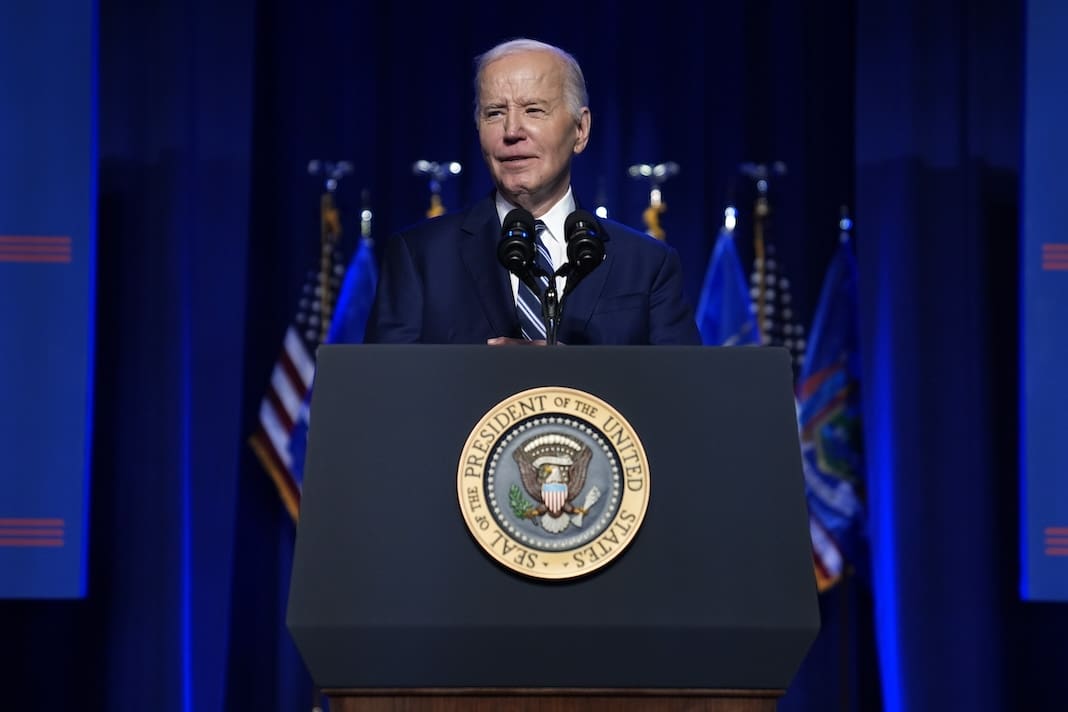Corporations make record profits as food prices soar, says new ‘greedflation’ report
“As Pennsylvania families prepare for the holidays, they’re seeing higher prices on everything from chicken to pork to potatoes,” Sen. Bob Casey said.

Corporate greed is leaving families throughout the United States to face ever-increasing food bills even as inflation eases, according to a new “greedflation” report from Pennsylvania Sen. Bob Casey.
“Stuffing Their Pockets: How Big Food and Agriculture Businesses Are Making Your Holiday Meals More Expensive” details how some of the country’s biggest agribusiness corporations are netting record profits while increasing prices for goods like chicken, pork and potatoes.
Those prices, Casey says, are not to offset inflation — which eased in October, according to the federal government — but rather to increase their own profits.
“As Pennsylvania families prepare for the holidays, they’re seeing higher prices on everything from chicken to pork to potatoes,” Casey said in a prepared statement. “These higher prices are the result of greedflation — big food and agriculture businesses are gobbling up Pennsylvanians’ paychecks simply because they can.”
Inflation rose 19% between January 2020 and October 2023.However, during that same time period, prices soared by 38% for boneless chicken and by 28% for pork chops. Potato prices, meanwhile, are 60% higher this year than last year, Casey’s report found.
As customers’ food bills continue to rise, so do corporations’ profits, Casey points out. Tyson Foods, the largest producer of chickens in the U.S. and one of the largest producers of beef and pork, doubled its profits in the final quarter of 2021 and reported record sales and earnings in 2022, the last full year for which data is available. Meanwhile, net revenue for Pilgrim’s Pride, the second-largest chicken producer in the country, jumped by 53% between 2019 and 2022.
In the wake of ever-increasing food costs, companies have been hit with hefty fines after being accused of fixing prices. Tyson, for example, in 2021 paid $221.5 million to restaurants and supermarkets to settle claims it illegally conspired to inflate chicken prices. The U.S. Department of Justice fined Pilgrim’s Pride $107 million after the company pleaded guilty in 2021 to fixing prices for chicken products.
Corporations are also employing dubious practices to limit supply in order to keep prices high, according to Casey. Earlier this year, Tyson announced its plans to lay off thousands of workers and close six chicken plants in Virginia, Arkansas, Missouri and Indiana. In October, the company said it would lay off even more workers at a North Carolina plant.
Casey’s report is also critical of Smithfield, the largest pork producer in the U.S., which recorded $1.4 billion in profits in 2022. Meanwhile, the most recent quarterly report for Lamb Weston Holdings, the largest frozen potato provider in the country, says its net income soared 111% compared to one year ago.
Tyson, Pilgrim’s Pride, Smithfield, and Lamb Weston Holdings did not immediately respond to requests for comment.
The U.S. Department of Justice filed an antitrust lawsuit in September against the data company Agri Stats, alleging that the group’s weekly meat pricing and sales report has allowed anti-competitive practices in the chicken, pork and turkey industries.
According to the DOJ’s complaint, an executive at the pork processor Smithfield summarized Agri Stats’ consulting advice in four words: “Just raise your price.”
To further investigate price gouging among food companies, Casey on Wednesday sent a letter to the Federal Trade Commission and the U.S. Department of Agriculture requesting that the agencies investigate possible unfair pricing practices at major chicken and pork processors.
“Families in Pennsylvania and across the Nation deserve to know whether these high prices are the result of genuine economic pressures on the industry, or whether they are artificial actions taken to enrich those at the top,” Casey wrote in the letter. “Inflation is real, and we owe it to working families to ensure that we are taking every action possible to prevent bad actors from making it worse for their own gain.”
This is the second “greedflation” document from Casey’s office, which earlier this month released its “A Day in the Life” report that investigated corporate price gouging for everyday items like toothpaste and toilet paper. Using federal data, that report found inflation rose by 14% between July 2020 through July 2022 while corporate profits soared by 74.9% during the same time period. The Federal Reserve reported that corporate profits accounted for all of the inflation from July 2020 through July 2021 and 41% of all inflation from July 2020 through July 2022.




